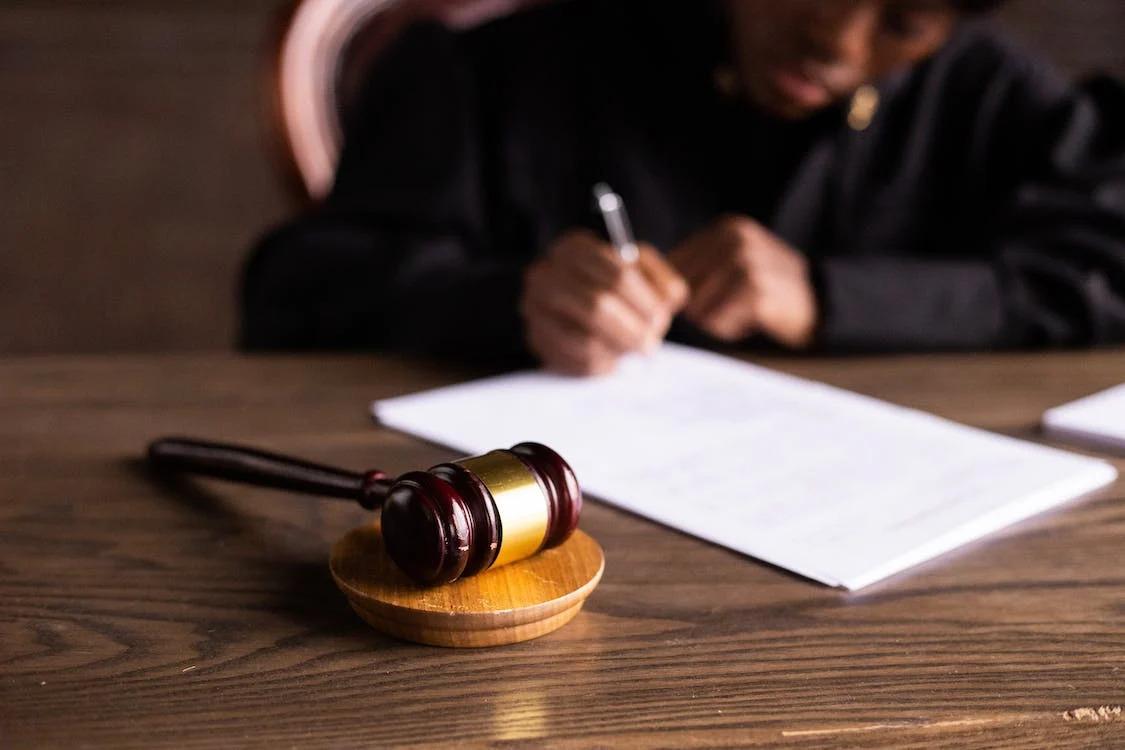Criminal law is a complex field, and within its intricacies, various legal doctrines come into play. One such concept that often arises in the realm of Canadian criminal law is “willful blindness”. To those unfamiliar with this term, it might sound like an actual offense, but it’s not.
Willful blindness is, in essence, a legal doctrine used to assess the state of mind of an accused person. Understanding this concept is paramount for anyone navigating the Canadian legal system, as it plays a crucial role in determining guilt or innocence.
Understanding Willful Blindness
Willful blindness, as a legal concept, holds immense importance in Canadian criminal law. It serves as a substitute for actual knowledge, focusing on the accused person’s state of mind when they were engaged in a particular action.
This is important because in every criminal offence, Crown counsel must prove beyond a reasonable doubt all essential elements of the offence. This includes the actus reas (the action component of the crime) and the mens rea (the mental component of the crime). The mean rea of many crimes requires an intention to do something, or potentially subjective knowledge about an object.
In simpler terms, it describes a situation where someone tries to avoid criminal liability by deliberately ignoring the obvious. Instead of questioning what a reasonable person would have done, willful blindness looks at whether the accused intentionally refrained from making inquiries to avoid having that subject knowledge and confirming their suspicions.
Examples Where Willful Blindness May Be Called Into Question
To make matters more clear, here are some examples of when willful blindness may apply:
- Pawnshop Purchase: An individual buys a valuable item from a stranger on the street at an unbelievably low price. They intentionally refrain from asking about the item’s origin, suspecting it might be stolen but avoiding confirming their suspicion.
- The Unusually Generous Offer: A person is offered a job that promises a remarkably high salary for very little work. Although they doubt the legitimacy of the offer, they accept it without further investigation to maintain plausible deniability.
- Border Crossings: A traveler is asked to transport a sealed package across an international border. Despite suspecting the contents may be illegal, they deliberately avoid inquiring about it to shield themselves from any knowledge of its contents.
- Suspicious Source: Someone receives a large sum of money from an unknown source. They consciously choose not to question the source’s legality, ignoring red flags that suggest the money might be illicit.
- Neighbourhood Rumours: A homeowner discovers hidden, valuable items buried in their backyard, which they believe might be stolen. Instead of reporting it, they decide to sell the items without confirming their suspicion or making inquiries.
The Connection to Criminal Liability
Willful blindness isn’t just an abstract legal theory. It directly links to criminal liability. It plays a significant role in determining whether an accused person is guilty of a crime, and as such Canadian law recognizes and defines willful blindness within the framework of criminal proceedings. The trial judge plays a pivotal role in determining whether an accused person was willfully blind.
Is Willful Blindness a Criminal Offence?
Now, a central question arises: is willful blindness itself a criminal offence? The answer is no. Willful blindness is not a standalone crime. It’s a legal doctrine used to assess the accused person’s state of mind during a specific act. Nevertheless, despite not being a criminal offence, willful blindness can still have a profound impact on the outcome of a case.
How is Willful Blindness Determined?

Establishing whether a person was wilfully blind involves a careful examination of the individual’s state of mind. The courts consider various factors and circumstances to draw a conclusion. Let’s delve into how willful blindness is determined.
- Accused’s Suspicion: The process starts with identifying whether the accused had a suspicion about a particular fact that would lead to a prohibited consequence or situation. In the eyes of the law, this suspicion is crucial, as it initiates the need for further inquiry.
- Probable or Likely Suspicion: The court may consider a reasonable person’s suspicion. Was the suspicion reasonable or at least likely to occur? The idea here is to understand if there were sufficient grounds for the accused to be wary of potential wrongdoing.
- Inquiry: The next step is to establish whether the accused made any inquiries concerning their suspicion. Did they attempt to confirm or refute their concerns? If the answer is yes, the accused might have a legitimate defence against willful blindness.
- Remaining Suspicion: Even after inquiring, if the accused retained suspicions about the prohibited consequence or situation, it raises questions about their involvement. A persistent, unaddressed doubt can suggest willful blindness.
- Further Inquiries: If the accused had lingering suspicions and refrained from making additional inquiries, this strongly indicates willful blindness. It implies that the accused deliberately chose not to confirm their suspicions to maintain plausible deniability.
In essence, the determination of willful blindness focuses on the accused’s subjective state of mind and their actions (or inaction) when faced with objectively likely suspicions. The key question is whether they intentionally refrained from seeking the truth to avoid potential criminal liability. This nuanced assessment ensures that individuals are held accountable for deliberately ignoring the obvious while respecting the principle of reasonable doubt.
R. v. Downey: Shaping the Understanding of Wilful Blindness
The case of R. v. Downey, 2017 ONCA 789 is a short decision that provides a very useful summary of the doctrine of willful blindness.
In R. v. Downey, firearms were discovered hidden in a vehicle driven by Michelle-Ann Downey as she crossed the Canadian border from Detroit, Michigan. The trial judge determined she was guilty, applying the doctrine of willful blindness.
On appeal, it was argued that the trial judge erred by failing to consider that there was no evidence that the accused suspected she had firearms. This argument was rejected and it was affirmed that willful blindness does not require suspicion about the specific nature of the item that forms the charge, but that wilful blindness is a state of clear suspicion to the point of requiring further investigation, and intentionally not proceeding with that investigation into the facts.
The Court of Appeal’s decision reaffirmed that willful blindness acts as a substitute for actual knowledge. In this context, it was established that a person can be found guilty of a crime that requires specific knowledge if they deliberately refrain from seeking confirmation of their suspicions..
This case underscores the significance of the accused’s state of mind and how the doctrine of willful blindness can be used to impute knowledge. It also emphasizes that one’s suspicion and deliberate ignorance play a crucial role in legal determinations of guilt












